Faith under Siege: An Islamic Theological Reading of Palestinian Resilience
In the Islamic intellectual tradition, Īmān (faith) is not a static assent to doctrinal propositions but a dynamic state of the heart and a continuous enactment of submission to Allah’s will. The Qur’an and Sunnah present faith as a lived reality tested, refined, and manifested through trials and tribulations. This lived reality is profoundly visible in the Palestinian experience, where faith is sustained and expressed under extreme and continuous oppression.
The Palestinian condition is one of persistent political violence, material deprivation, and existential precarity. Yet, amid these hardships, their collective religious disposition is marked by verbal affirmations of praise to Allah (al-ḥamdu lillāh), recitation of the Qur’an in moments of acute distress, and an orientation toward divine mercy and sovereignty even when immediate circumstances offer no relief. This phenomenon invites a theological inquiry: how does one define the faith of a people whose lives are measured in moments between air raids, yet whose hearts remain tethered to divine remembrance?
From an Islamic studies perspective, this question necessitates an interdisciplinary approach, integrating Qur’anic exegesis, Prophetic traditions, Sufi discourse on contentment (riḍā’), and contemporary field testimonies from Gaza. By doing so, we move beyond sentimental admiration to a scholarly appreciation of Palestinian faith as an embodied theology, one that harmonises ṣabr (steadfast patience) and shukr (gratitude) as simultaneous responses to divine decree (qaḍā’ wa-qadar).
Qur’anic Paradigm of Faith under Trial
The Qur’an situates īmān as a reality authenticated through ibtilā’ (trial) and balā’ (affliction). The opening discourse of Sūrat al-ʿAnkabūt makes this explicit:
أَحَسِبَ النَّاسُ أَنْ يُتْرَكُوا أَنْ يَقُولُوا آمَنَّا وَهُمْ لَا يُفْتَنُونَ
“Do people think that they will be left to say, ‘We believe,’ and they will not be tested?” (Qur’an 29:2).
According to al-Ṭabarī, this verse serves both as a warning and a consolation: it warns believers that faith will inevitably be subject to divine testing, and it consoles them by implying that such tests are a mark of divine attention, not abandonment.
One of the most cited paradigmatic verses on this theme is in Sūrat al-Baqarah:
وَلَنَبْلُوَنَّكُمْ بِشَيْءٍ مِنَ الْخَوْفِ وَالْجُوعِ وَنَقْصٍ مِنَ الْأَمْوَالِ وَالْأَنْفُسِ وَالثَّمَرَاتِ ۗ وَبَشِّرِ الصَّابِرِينَ
“And We will surely test you with something of fear and hunger and loss of wealth, lives, and fruits – but give glad tidings to the patient.” (Qur’an 2:155).
Al-Qurṭubī, in his Tafsīr, unpacks “fear” (khawf) here as the dread arising from the oppression of enemies and the insecurity of livelihood, a description that precisely mirrors the Palestinian condition under occupation. The “loss of lives” and “loss of wealth” are not abstract metaphors but lived realities for those whose homes, land, and families are subject to systematic destruction.
The verse continues:
الَّذِينَ إِذَا أَصَابَتْهُمْ مُصِيبَةٌ قَالُوا إِنَّا لِلَّهِ وَإِنَّا إِلَيْهِ رَاجِعُونَ
“Who, when disaster strikes them, say, ‘Indeed, we belong to Allah, and indeed to Him we will return.’” (Qur’an 2:156).
Ibn Kathīr comments that this formula of remembrance functions as an immediate reorientation of the heart—from the chaos of loss to the constancy of divine ownership and the promise of return. It reframes catastrophe as a station on the believer’s journey toward Allah.
In Palestinian discourse, this Qur’anic paradigm manifests in two interrelated ways:
- Verbal testimony – the frequent utterance of al-ḥamdu lillāh and innā lillāh wa-innā ilayhi rājiʿūn in daily interactions, even after bombings or bereavements.
- Embodied remembrance – the habitual recitation of Qur’an in shelters, hospitals, and even during surgical procedures, as a practical enactment of the verse:
الَّذِينَ آمَنُوا وَتَطْمَئِنُّ قُلُوبُهُمْ بِذِكْرِ اللَّهِ ۗ أَلَا بِذِكْرِ اللَّهِ تَطْمَئِنُّ الْقُلُوبُ
“Those who believe and whose hearts find tranquility in the remembrance of Allah—indeed, in the remembrance of Allah do hearts find tranquility.” (Qur’an 13:28).
Thus, the Palestinian experience is not an anomaly but a living embodiment of the Qur’anic template for faith under trial. Theologically, their ṣabr is not passive endurance; it is an active spiritual discipline that transforms suffering into a site of divine encounter.
Faith as Lived Praxis in Crisis
While the Qur’an and Sunnah provide the theological scaffolding for understanding īmān under trial, the Palestinian context demonstrates how these principles are embodied in lived experience. Here, faith is not an abstract commitment, but a continuous set of practices—verbal, ritual, and emotional—performed under extreme duress.
Medical professionals working in Gaza consistently testify to the integration of worship and medical crisis. Dr Ghassan Abu Sitta, a British-Palestinian plastic and reconstructive surgeon, recounts that during the 2014 Gaza war, patients awaiting surgery, some with life-threatening injuries, would quietly recite Sūrat al-Fātiḥah, Āyat al-Kursī, or the declaration lā ilāha illā Allāh. This was not mere habit; it was an intentional act of placing themselves in the care of Allah when facing the uncertainty of survival.
In Islamic psychology, such behaviour reflects tawakkul (reliance upon Allah), which, as al-Ghazālī notes in Iḥyā ʿUlūm al-Dīn, is “the repose of the heart in the sufficiency of Allah, without anxiety over means or outcomes.” In these surgical theatres, tawakkul becomes a tangible state, merging the clinical and the spiritual.
Eyewitness reports and visual documentation from journalists like Motaz Azaiza and Bisan Owda show groups of displaced Palestinians in UNRWA shelters reciting the Qur’an aloud. Often, these gatherings are initiated by elders or imams, but children participate as well, memorising verses amid the sound of distant shelling. This act transforms the shelter from a space of mere survival into a sacred site, resonating with the Qur’anic promise:
فَاذْكُرُونِي أَذْكُرْكُمْ
“So, remember Me; I will remember you.” (Qur’an 2:152)
Such remembrance serves both a psychological function, reducing fear and anxiety, and a theological function, reinforcing the community’s covenant with Allah.
A strikingly consistent pattern in field interviews is the Palestinian response al-ḥamdu lillāh to inquiries about well-being, even in contexts of visible injury or bereavement. For example, in a 2023 Al Jazeera interview, a man whose home had been destroyed and whose brother was killed responded to the question, “How are you coping?” with: “We are with Allah; al-ḥamdu lillāh for everything.” This echoes the Prophetic counsel:
“Look to those who are below you, and do not look to those above you, for it is more fitting that you will not belittle the favour of Allah upon you.” (Ṣaḥīḥ Muslim, 2963)
Here, gratitude is not circumstantial but ontological, rooted in an unwavering recognition of Allah’s sovereignty and mercy, independent of material conditions.
In these practices, such as Qur’anic recitation in medical emergencies, collective dhikr in shelters, and expressing gratitude in speech, we witness an embodied faith that refuses to be suspended, even momentarily, by violence or deprivation. This is precisely what classical scholars mean when they describe īmān as speech of the tongue, action of the limbs, and belief in the heart.
The Theology of Al-ḥamdu lillāh
The formula al-ḥamdu lillāh occupies a central position in the Qur’anic worldview. It opens the Qur’an itself in Sūrat al-Fātiḥah and is prescribed in response to both favourable and adverse conditions. The Qur’an frames ḥamd as a theological orientation, the recognition of Allah’s perfection, beneficence, and wisdom in every circumstance.
The Prophet ﷺ taught that ḥamd is obligatory upon witnessing both blessings and trials. In the ḥadīth of Suhayb reported in Ṣaḥīḥ Muslim, he said:
“The matter of the believer is wondrous. Indeed, all of his affairs are good for him—and that is for no one except the believer. If something good happens to him, he is grateful (shakar), and that is good for him. If something bad happens to him, he is patient (ṣabar), and that is good for him.” (Muslim, 2999)
Gratitude and patience are not presented as sequential stages but as simultaneous states, each sustained by ḥamd.
In Sufi literature, ḥamd is intimately linked with riḍā bi’l-qaḍā, contentment with the divine decree. Al-Qushayrī, in his Risālah, describes riḍā as “the heart’s joy in the unfolding of Allah’s decree, without resistance or complaint.” For the ṣiddīqūn (those utterly truthful), ḥamd is not conditional on receiving what they desire; it flows from the certainty that every event, ease or hardship, emerges from divine wisdom.
Ibn al-Qayyim, in Madārij al-Sālikīn, identifies ḥamd as “the most comprehensive form of remembrance, encompassing love, submission, and recognition of divine perfection.” Thus, uttering al-ḥamdu lillāh in calamity is a theological affirmation: “I acknowledge Your wisdom, even if my circumstance is bitter.”
Palestinian Usage as Lived Riḍā’
In Palestinian speech, al-ḥamdu lillāh has become a normative response to the question “How are you?”—regardless of whether the speaker is homeless, bereaved, or wounded. This linguistic habit reflects an embedded theology: to speak ḥamd is to refuse the framing of one’s life solely through the lens of loss. It situates the self within the divine narrative rather than the oppressor’s narrative.
From an Islamic psychological perspective, this verbal ḥamd serves as both cognitive reframing (interpreting events through divine decree) and spiritual anchoring (fortifying the heart with the remembrance of Allah). In contexts like Gaza, this utterance becomes not merely devotional but also resistant, asserting a sovereignty of the heart that the siege cannot penetrate.
In sum, the Palestinian al-ḥamdu lillāh is a lived manifestation of Qur’anic praise, Prophetic guidance, and Sufi riḍā. It transforms a routine greeting into an act of worship and defiance, a declaration that, even in the shadow of tanks and rubble, divine praise remains uninterrupted.
Faith as Resistance
For Palestinians, faith is not simply a coping mechanism but an act of resistance. In a context where political, military, and social structures are designed to erode identity and agency, the refusal to relinquish faith constitutes a profound form of non-violent defiance. To continue reciting the Qur’an under bombardment, to whisper lā ilāha illā Allāh before surgery, or to answer al-ḥamdu lillāh when asked about one’s condition is to assert: “You may control my circumstances, but you cannot colonise my soul.”
This resonates with the Qur’anic description of believers:
رِجَالٌ صَدَقُوا مَا عَاهَدُوا اللَّهَ عَلَيْهِ
“Men who have been true to what they pledged to Allah.” (Qur’an 33:23)
The verse situates steadfastness not in political autonomy but in fidelity to the covenant with Allah—a fidelity visibly enacted in Palestinian resilience.
Eyewitness accounts reinforce this dual character of faith as devotion and resistance. During the 2023 Gaza bombardments, footage circulated of families praying tarāwīḥ in destroyed mosques and open courtyards amidst rubble. One survivor told Al Jazeera: “We lost our homes, but we did not lose our prayers.” Such statements embody an Islamic theology of resistance: structures may be demolished, but the act of worship, the human orientation to Allah, remains indestructible.
This recalls the Prophetic tradition: “The earth has been made for me a place of prayer and a means of purification.” (Ṣaḥīḥ al-Bukhārī, 335; Ṣaḥīḥ Muslim, 521). Thus, the very act of praying on rubble transforms devastation into sacred space, refusing to allow violence to dictate the limits of devotion.
Despite the collapse of mosques, Palestinians have continued to recite the Qur’an at the ruins. A health worker in Rafah told CNN: “We say ‘Allāhu akbar’ when we are digging the displaced people out from under the rubble.” This act transforms sites of catastrophe into sacred ground, affirming that faith endures even in the face of destruction. In March 2025, over 200 reciters gathered in Khan Younis to recite the entire Qur’an from memory—an extraordinary communal affirmation of religious identity and resilience in the face of siege.
Amidst unimaginable hardship, Palestinians have preserved Ramadan traditions, preparing iftār in makeshift kitchens and adapting cuisine from scarce ingredients—as acts of cultural and spiritual resilience. Together, these examples demonstrate that Palestinian expressions of faith are not passive survival strategies but active affirmations of human dignity and divine sovereignty.
Wael Hallaq, in his work Reforming Modernity, argues that Islamic subjectivity is constituted through obedience to Allah rather than conformity to external power structures. In this light, Palestinians embody an “ethical subjectivity” that resists domination not by denying pain but by refusing to let it sever their covenant with Allah. Their faith practices, Qur’an, dhikr, and ḥamd construct a moral world that persists despite the political violence imposed upon them.
Conclusion
This study has argued that the faith of Palestinians cannot be understood merely as cultural resilience or psychological coping, but as a fully articulated theological praxis deeply rooted in Qur’anic paradigms, Prophetic exemplarity, and the classical Islamic discourse on ṣabr, shukr, and riḍā bi’l-qaḍā’. In the lived context of Palestinians, faith emerges not in abstraction but in performative acts, Qur’anic recitation during bombardments, verbal affirmations of al-ḥamdu lillāh after injury or bereavement, and the continuation of ritual life amidst destruction. These practices constitute what may be described as an embodied theology, where belief, speech, and action converge under conditions of systematic oppression.
Contemporary testimonies from 2024 and 2025, such as mass Qur’anic recitations in Khan Younis and the preservation of Ramadan rituals under siege, underscore the continuity of this theological praxis in the present. These incidents highlight how ordinary religious acts, when performed under siege, acquire heightened theological and political significance.
In sum, Palestinian faith under siege exemplifies an Islamic model of īmān as dynamic, resilient, and resistant. It affirms that even in contexts where worldly sovereignty is denied, the sovereignty of Allah remains unassailable, and human dignity is preserved through devotion. This case invites Islamic studies scholarship to reconceptualise faith not only as doctrine or identity, but as a lived, embodied, and resistant praxis that transforms suffering into a site of meaning and divine proximity.
I
References:
- Al-Qur’an al-Karim
- Muslim ibn al-Hajjaj. Sahih Muslim. Beirut: Dar al-Kutub al-‘Ilmiyyah.
- Al-Bukhari, Muhammad ibn Ismail. Sahih al-Bukhari. Cairo: al-Matba’ah al-Salafiyyah, 1980.
- Al-Tabari, Muhammad ibn Jarir. Jami’al-bayan ‘an ta’wil ay al-Qur’an. Beirut: Dar al-Fikr, 1984.
- Al-Qurtubi, Muhammad ibn Ahmad. Al-jami’ li-ahkam al-Qur’an. Cairo: Dar al-Kutub al-Misriyyah, 1964.
- Ibn Kathir, Ismai’il ibn ‘Umar. Tafsir al-Qur’an al-‘Azim. Riyad: Dar al-Tayyibah, 1999.
- Al-Ghazali, Abu Hamid. Ihya’ ‘Ulum al-din. Beirut: Dar al-Ma’rifah, 2005
- Al-Qushayri, Abu al-Qasim. Al-Risalah al-Qushayriyyah. Cairo: Dar al-Ma’arif, 1966.
- Hallaq, Wael B. Reforming Modernity: Ethics and the New Human in the Philosophy of Abdurrahman Taha. New York: Columbia University Press, 2019.
- Haque, Amber. Psychology from Islamic Perspective: Contributions of Early Muslim Scholars and Challenges to Contemporary Muslim Psychologists. Journal of Religion and Health 43, no.4 (2004): 357-377.
Disclaimer
The views expressed in this article are the author’s own and do not necessarily mirror Islamonweb’s editorial stance.

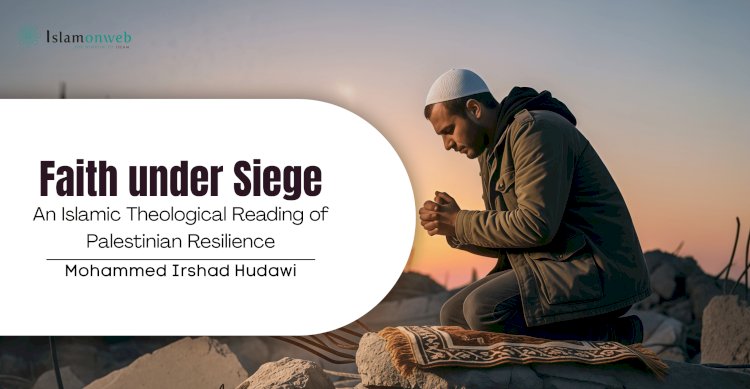


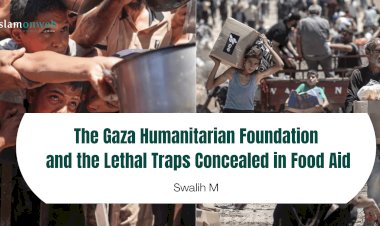
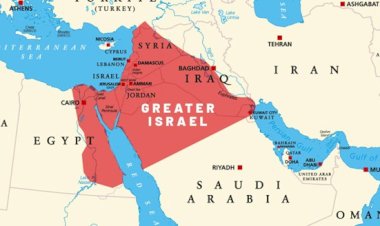
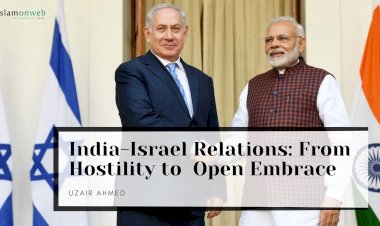
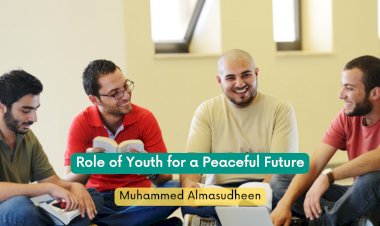
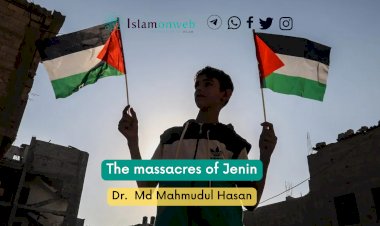
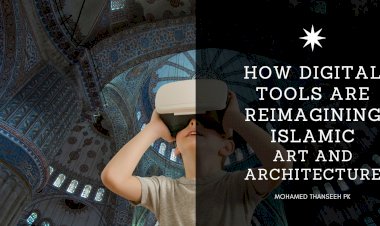














Leave A Comment